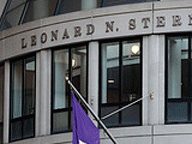Faculty News
—
In an in-depth interview, Professor Michael Spence reflects on the weakness of the global economy
—

Excerpt from Diario Financiero -- "The collapse of the stock market in China and increased global volatility triggered by the devaluation of the yuan, he said, 'will not lead to a collapse' in the second-largest economy in the world, but it may be pointing to problems the Asian giant will have 'for longer than had been thought.'"
Faculty News
—

Excerpt from Diario Financiero -- "The collapse of the stock market in China and increased global volatility triggered by the devaluation of the yuan, he said, 'will not lead to a collapse' in the second-largest economy in the world, but it may be pointing to problems the Asian giant will have 'for longer than had been thought.'"






















